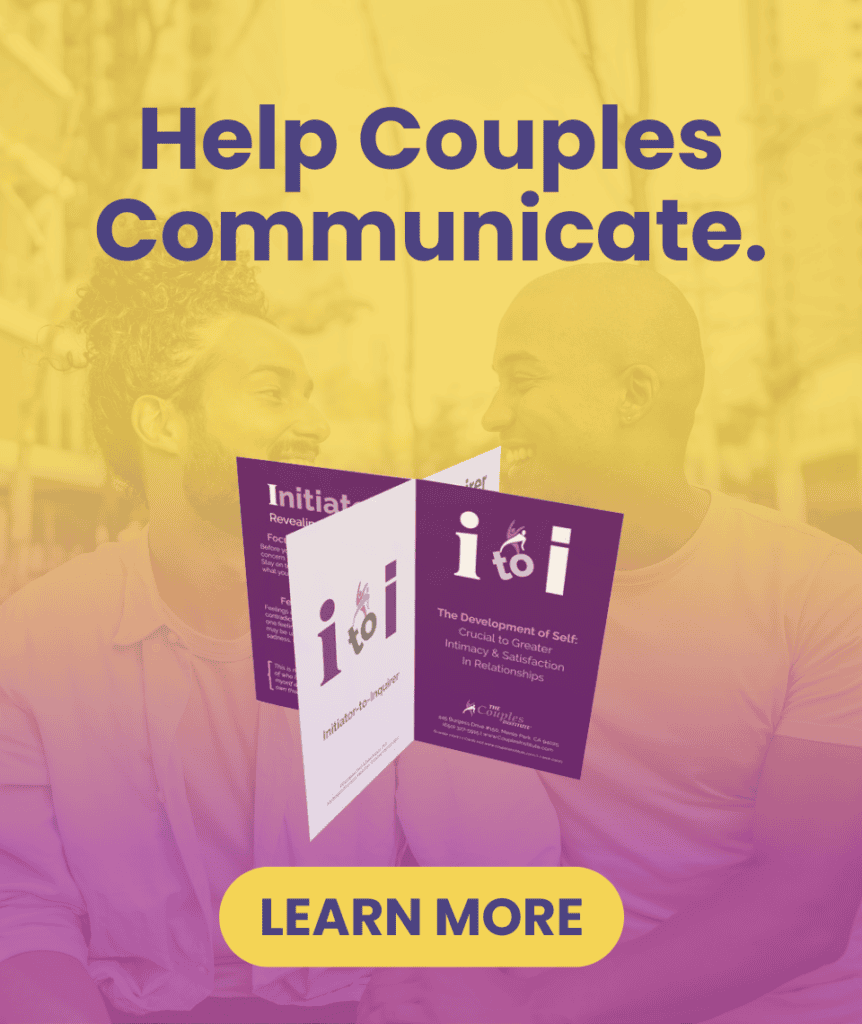Many of us look forward to taking a break with a loved one. It can be a wonderful way to renew ourselves and our relationship, a time to visit special places together and to do things we don’t normally get to do.
So we cover the basics. We book a place to stay, transport to get there, and when we’re really organized, tickets for a special event or two. Then we count down the days until our vacation begins.
What can possibly go wrong?
Well, personally speaking, I know the disappointment of returning from vacations feeling deflated, confused and angry… wondering where it went wrong.
From my experience, this is how relationships can turn sour during vacations, and I’d like to share some steps you can take to help prevent these special times from being ruined.
The Problem
In a nutshell, the disappointments I’ve experienced on vacation have been caused by making assumptions about what my husband wants, and having unspoken, and sometimes unrealistic, expectations that he should know what I want.
The Remedy
Step 1: Self-Reflection
Before setting off it’s important for each partner to take time to think about what the break means to you; what energy you intend putting into it and what you hope you will take from it.
Create separate wish lists. Write down everything and dream big! What are you really looking forward to – sightseeing, exploring different cultures, space for stimulation, creativity, rest and relaxation, sport, individual time/intimate time/family time? The more specific you can be the better.
Step 2: Share and Listen
Tell your partner you are interested in hearing what is on their wish list. Invite them to share it with you and be a good listener. Are you surprised by anything on their list? You’re bound to be.
So rather than giving a negative reaction, see if you can ask questions to help them express what their desire means to them:
“How important is this to you?”
“Would you be disappointed if you don’t get to do it?”
“Would you like some help from me so you can make this happen?”
When your partner is finished switch roles and share what’s on your list. As the listener, we are giving our partner space to think out loud and to learn more about themself. When we share our desires, we are exploring and expressing what’s on our mind, not pushing for agreement that it is going to happen.
Step 3: Keep it going!
Treat your wish lists as a work in progress and let them develop. Listening to, and sharing our hopes and dreams is an intimate privilege that often impacts us deeply. If this happens let your partner know: “Hearing you say how important this is to you, I’m now thinking…”
Look for areas of consensus. Be open to new ideas and be realistic. If you’ve been emphasizing your desire for a restful holiday, it’s unfair to become resentful for not having enough stimulation.
Create a joint and separate individual lists. Share how each of you feels about having time for individual pursuits. Given a choice, most people would opt to do something on their own rather than have a resentful partner tag along.
Step 4: Dealing with Conflict
Tension and conflict are inevitable in an intimate relationship. Be upfront when something is not right for you. But be gentle. The first three minutes of a conversation determines how it’s going to end. What do you want your partner to know about how you’re feeling, and how can you talk about a frustration without resorting to blame or criticism?
Step 5: Connecting with your Inner Child
Take time to play, laugh, and be grateful.
I hope your next vacation is wonderful!




 We respect your privacy.
We respect your privacy.


Thank you Nancy for this article. So helpful and practical. I think couples often feel a vacation in itself will “fix” things; but without the intentional planning and clear communication that you describe, vacations can often exacerbate issues. I am going to review this next time my husband and I embark on a trip together!
You’re right Jane. When life is busy it’s especially tempting to neglect the groundwork. Thanks for your feedback!
This is timely because we just got back from a short trip. For me, vacation just emphasizes the problems we already have. If I don’t do all the planning and make all the arrangements, we wouldn’t even have a vacation. My partner just says “sure, whatever” to anything I suggest, as long as I do all the work. I try to get him interested and ask what he’d like to see, but he won’t even look a websites to see what he might like. “Whatever you want”. He’s not being agreeable, he truly doesn’t care where we go, what we do, or if we don’t go anywhere, and has the same total lack of enthusiasm when we get there. In the past, I told him it was his turn to plan a trip; after 3 years I gave up waiting for even a weekend away and planned it myself. I feel like I’m dragging him along with me rather than sharing a vacation with someone. How do I get him to participate more and show a little more interest in our life?
Hi Desi,
I hugely appreciate your willingness to share your disappointment in your recent vacation, and while it’s still fresh in your mind, you have an opportunity, if you’re willing, to take an objective look the part you play in the dynamic between you and your partner.
You could begin by taking a look at the ways you may be making it difficult for your partner to participate in your relationship. When you are disappointed do you express your frustration in a gentle manner or by blaming or criticising him? Do you focus on staying calm and curious about your partner rather than jumping to negative conclusions about him? Are you really open to his opinions or do you push for things to be done your way? These are tough questions Desi, and are the basis of an effective way of being in an intimate relationship.
If you want a better relationship with your partner it’s important to tell him that, and that you want to start by improving the way you deal with your differences. Good luck Desi. I hope you find these steps useful.
Hi Nancy,
Thank you for an excellent article that is such an important reminder. Bottom line – ALL ROADS LEAD BACK TO DIFFERENTIATION……NO WAY AROUND IT!
Hi Deb, thanks for your feedback and your emphasis on differentiation.
Thank you Nancy for your timely and direct discussion about vacations with partners. I agree with you that frequently couples do not share their personal desires for what they want to experience during vacation. You offer good ideas how to address these issues. Thanks again.
I appreciate your feedback Alexa!
Thanks for this very practical and useful piece with very do-able suggestions, Nancy! As the planner, I can and DO make so many assumptions that what I’d like, my husband is bound to enjoy too, and the interval adn visits with the friends that I am looking forward to spending time with, he is bound to enjoy too! I will be planning a checking-in session for me and him, and will surely pass on the excellent ideas to clients too. Thanks for putting this together, Nancy!
Running a busy practice, it is so easy for my husband and I to MAKE IT to a vacation! We’re not really enjoying the pleasure that comes by extending it by dreaming, planning, talking…ahead of time about what we want and how we want to FEEL.
With the help of this article, we’re planning to think ahead, and anticipate where we usually fall down, and figure out how to not fall into our usual patterns.
Thanks, Nancy!!!
On my last decent vacation I went to Indonesia with my girlfriend. We both clearly had different intentions for the trip, but we had discussed that in detail before booking. I wanted to do a lot of surfing which is usually a solo activity that generally last about 2-4 hours at a time and she really wanted to do a lot of touristy activities. We discussed this before booking and decided that we’d try and do one day on her choices and one day on mine. It worked well in the end, but I know she’ll never understand my desire to spend half of my day in the water when on holidays.